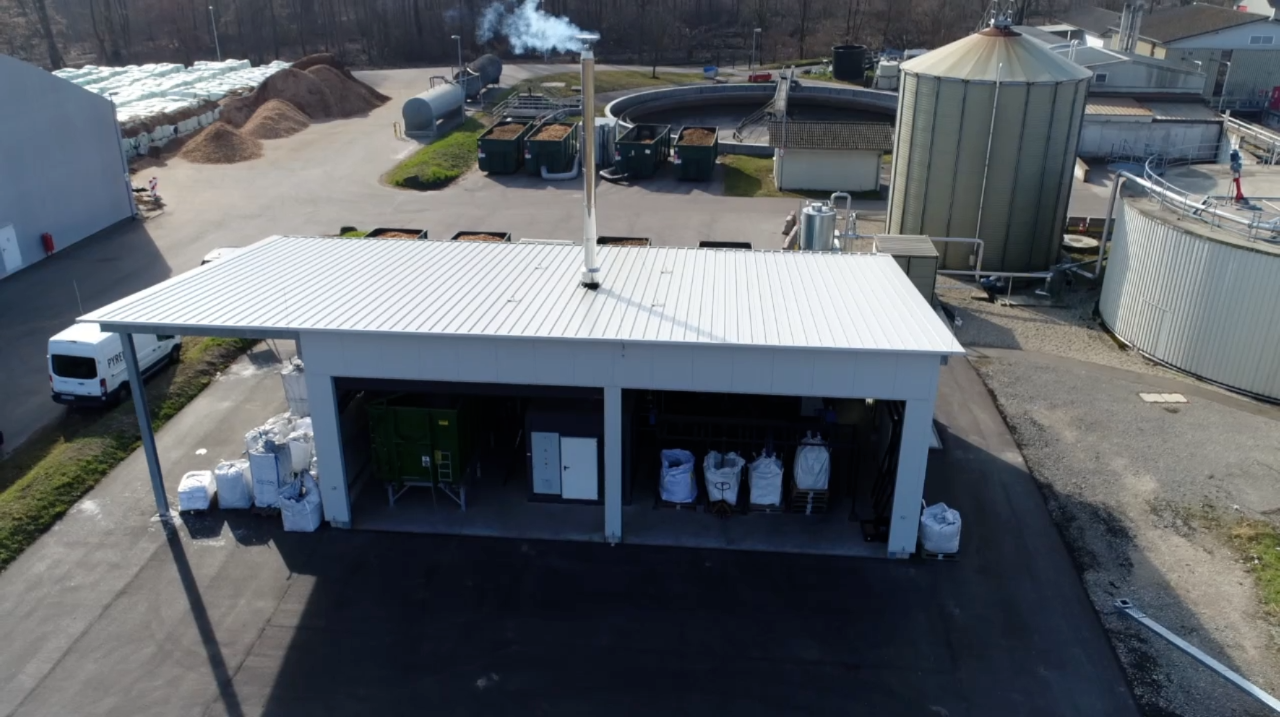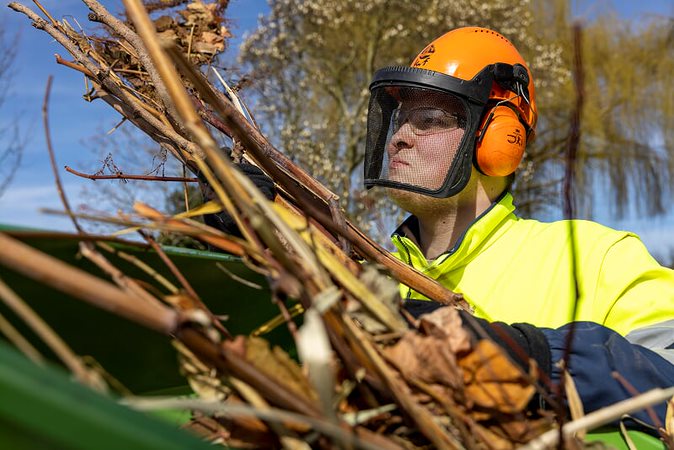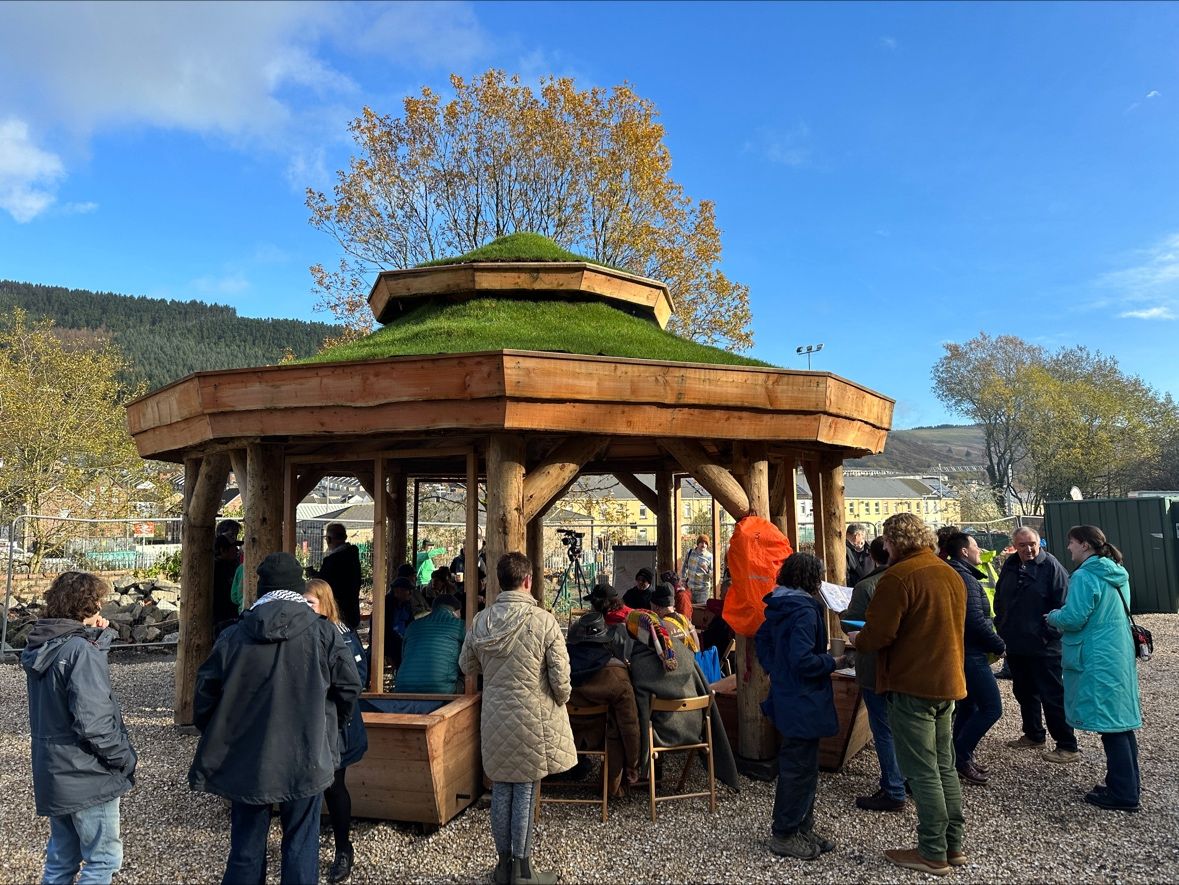Imagine a solution that not only reduces waste and mitigates CO2 emissions but also contributes to a carbon-neutral construction sector, improves soil fertility, and purifies air and water. This is the vision that powered the Interreg North-West Europe RE-DIRECT project.
Every year, 37 million tonnes of biomass, including grass, leaves, and soft wood residues, go to waste in North-West Europe. If just 10% of this waste biomass was harnessed, 3 million tons of CO2 emissions could be prevented. The RE-DIRECT project, led by the University of Kassel and running from September 2016 to December 2023, aimed to turn this waste into valuable products by converting biomass into biochar.
Bio-what?
Biochar, a type of plant-based coal, is produced by burning biomass without oxygen, a process known as pyrolysis. This method traps the carbon in the coal, preventing it from being released into the atmosphere.
This carbon-concentrated product is an incredibly versatile material, with applications ranging from enhancing soil quality as a green alternative to chemical fertilisers to substituting fossil coal in air filters and wastewater cleaning technologies. In the construction sector, it can be used to produce CO2 neutral concrete. And the list goes on… did you know that it was also a component in everyday cosmetic and pharmaceutical products?
Where does the RE-DIRECT project come in?
RE-DIRECT is a piece of a larger puzzle, representing a 15-year-long journey towards a circular carbon economy. Preceding projects such as the Interreg NWE COMBINE initiative (2011 - 2015) laid the groundwork for using biomass to produce bio-energy and storable solid fuel. RE-DIRECT expanded upon this foundation, exploring the conversion of biomass into biochar.

©University of Kassel | Pyrolysis plant attached to the sewage water plant in Baden Baden, Germany
The RE-DIRECT project was brought to life by a diverse consortium of partners including universities, municipalities, NGOs, energy agencies, construction agencies, and social partners. Together, they experimented with producing biochar from several types of biomass, continuously controlling and improving its quality while testing potential applications. Their efforts resulted in converting over 24,000 tonnes of unused biomass. The final product was used, among other applications, for water purification in a sewage water plant in Baden Baden, Germany.
During its capitalisation phase, RE-DIRECT expanded the application of biochar to urban farming. Several pilots across Belgium, France, Germany, Ireland, and Luxembourg used biochar as a soil substrate in vertical gardens, green façades, green benches, and rooftop gardens. These installations not only captured CO2 in urban settings but also offered additional benefits. For example, green façades on buildings collected wastewater from showers and sinks. This water, after flowing through the root zone of living plants, could be purified, and reused for toilet flushing.
RE-DIRECT also led to the launch of the Interreg NWE THREE-C project, which aimed to leverage the lessons learned to support SMEs in developing biochar products such as asphalt, fertiliser, or concrete.
A green and social project?
Beyond its ecological impact, RE-DIRECT also made significant social contributions. The project created and secured 25 jobs, providing employment opportunities for disadvantaged groups, including individuals with disabilities and those not in employment, education, or training (NEET).
"As an organisation, we are proud that we could train our disadvantaged workers in the field, adding different skills to their ability to find a new job: handling harvest machines, planting trees, safety rules and green maintenance skills” says Tom Anthonis from Kiemkracht (BE). In Belgium, biochar was used in tree plantation projects, which contributed to making the trees significantly more climate resilient.
 ©Kiemkracht | Worker in Belgium
©Kiemkracht | Worker in Belgium

©SWEA | Community space in Treherbert, United Kingdom
In Treherbert (UK), the project brought together local groups, including long-term unemployed individuals, who collaborated to build a community green-roofed meeting space using locally harvested timber. In this area, waste wood is converted into biochar, which is then used to improve soil around the structure and in planters throughout the town.
And the story continues!
RE-DIRECT partners joined forces again with the Interreg NWE CASCADE project, launched in 2023 with the aim to create a sustainable value chain for biomass to biochar products. Building on the experience of the RE-DIRECT and THREE-C projects, they will continue to promote a circular carbon economy by introducing biochar products to the market, improving biochar production, and optimising its use in numerous application fields.
RE-DIRECT key figures
- 16 partners
- 6 countries: Belgium, France, Germany, Ireland, Luxembourg, United Kingdom
- Cooperating from 2016 to 2023
- Budget: €7.0 M
More information
RE-DIRECT website CASCADE website